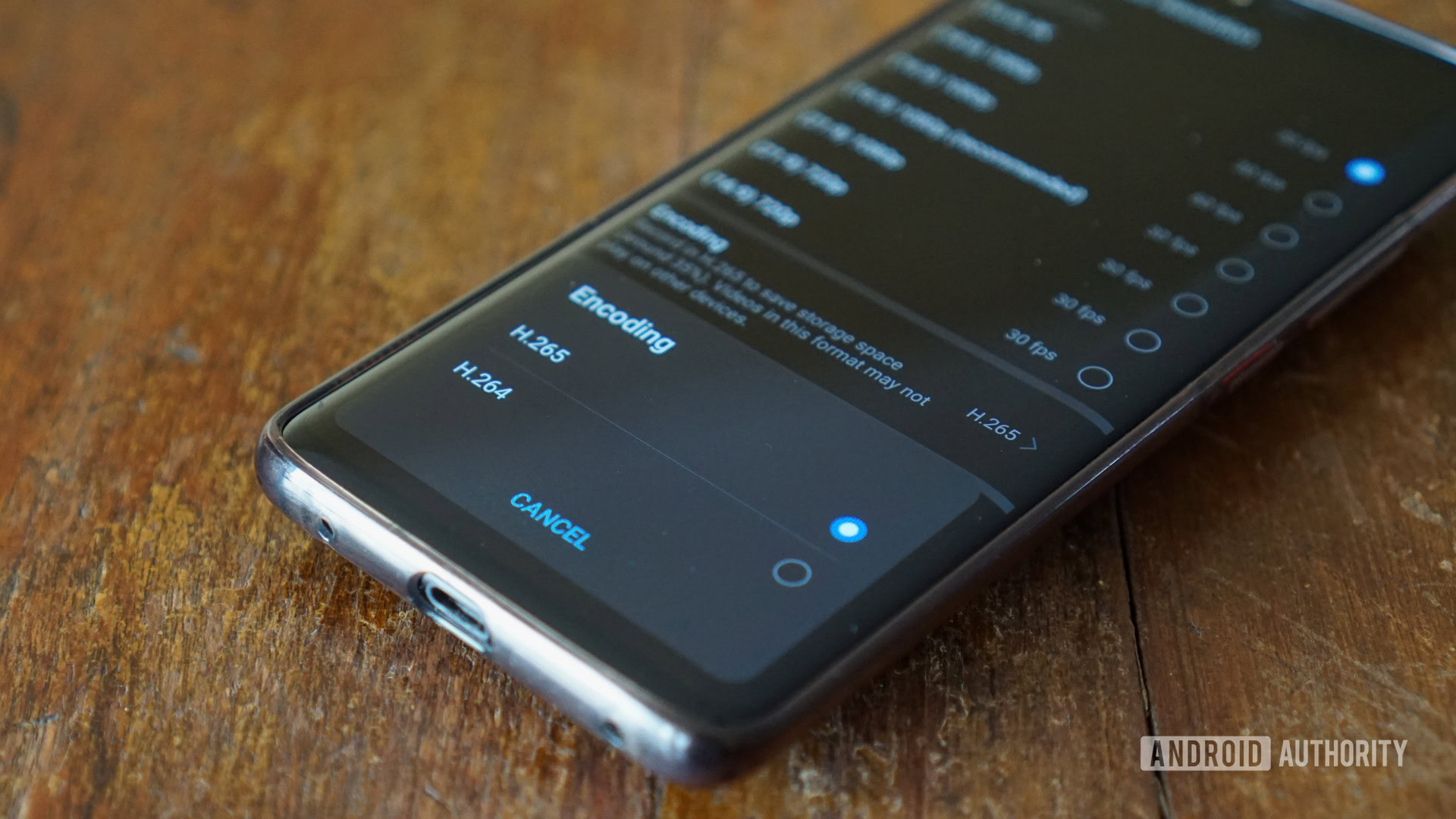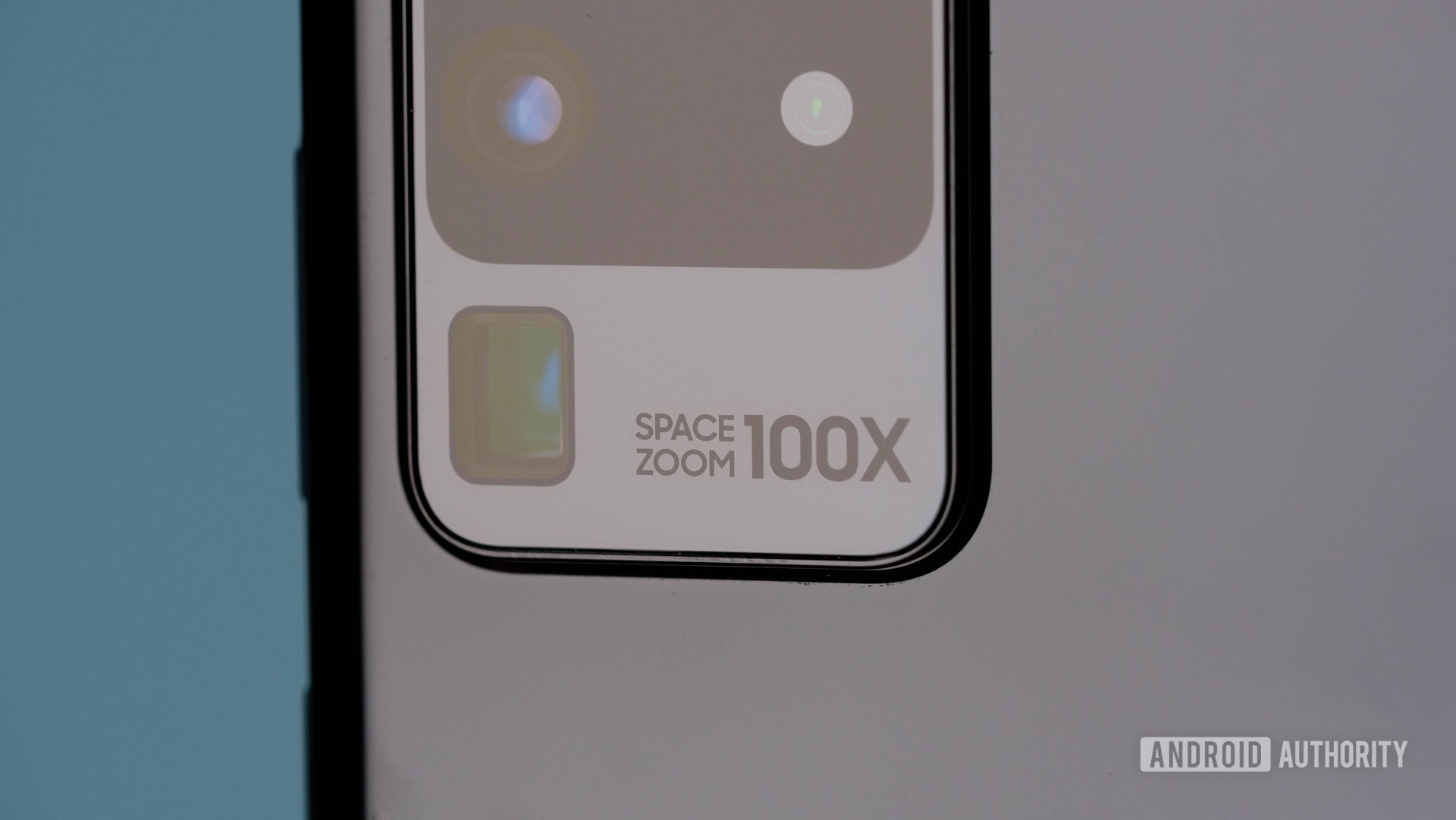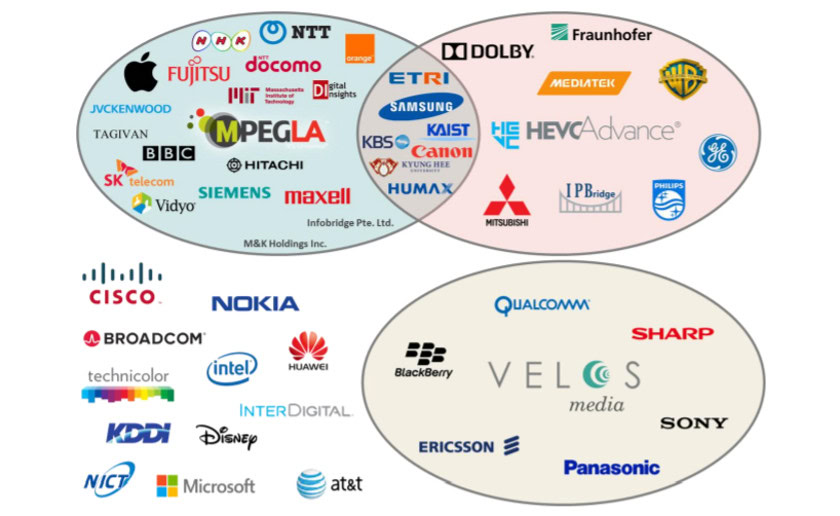Affiliate links on Android Authority may earn us a commission. Learn more.
Huawei, Qualcomm, Samsung back new format for 8K

The High Efficiency Video Codec (HEVC) promises to reduce video file sizes while offering better quality than current video codecs used in many devices today. This is particularly important for smartphones and high-resolution streaming, as 4K video becomes commonplace and 8K enters the fray.
We’ve already seen several smartphones ship with HEVC support. But Huawei, Qualcomm, and Samsung have just backed an alternative to HEVC, dubbed MPEG-5 EVC (Essential Video Coding). The new codec will be used for 4K, 8K, VR, AR, and more video content. So what’s the reason for the support, then?
The new video codec standard is reportedly capable of offering the same quality as HEVC while offering a 26% lower bitrate on average. That means less bandwidth used if you’re streaming from a service that offers MPEG-5 EVC. It should also theoretically mean smaller file sizes when you record video, while still maintaining the same quality.
Licensing means few devices support HEVC
However, a presentation on the codec also notes that HEVC’s biggest drawback is its licensing situation.
For earlier generations of MPEG video coding standards, a single licensing instance (patent pool) has been available, offering a single license, covering a vast majority of the technology in the standard, with licensing terms publicly available,” reads an excerpt of the presentation.

“The situation became different for HEVC, where there are three different patent pools and many patent-holders that do not offer their patents through any of the patent pools.”
In fact, the image below shows just how complex the licensing situation is for HEVC. Furthermore, a 2019 survey noted that just 12% of OTT video services used HEVC.

Fortunately, the team behind MPEG-5 EVC says that the baseline profile is available without royalties, and that individual technology components tied to the profile can turned off. This way, a licensee isn’t unwittingly using a license requiring a royalty fee.
A joint statement from HUAWEI, Qualcomm, and Samsung notes that the trio will offer “fair, reasonable, and nondiscriminatory terms for their respective essential patent claims covering this standard.”
The simplified licensing situation means MPEG-5 EVC might actually see a greater adoption rate than HEVC. It won’t be the only rival to HEVC though, as the royalty-free AV1 codec is another major contender. Nevertheless, the new codecs should mean more users are able to enjoy smoother video streaming and smaller file sizes on their smart devices in the near future.